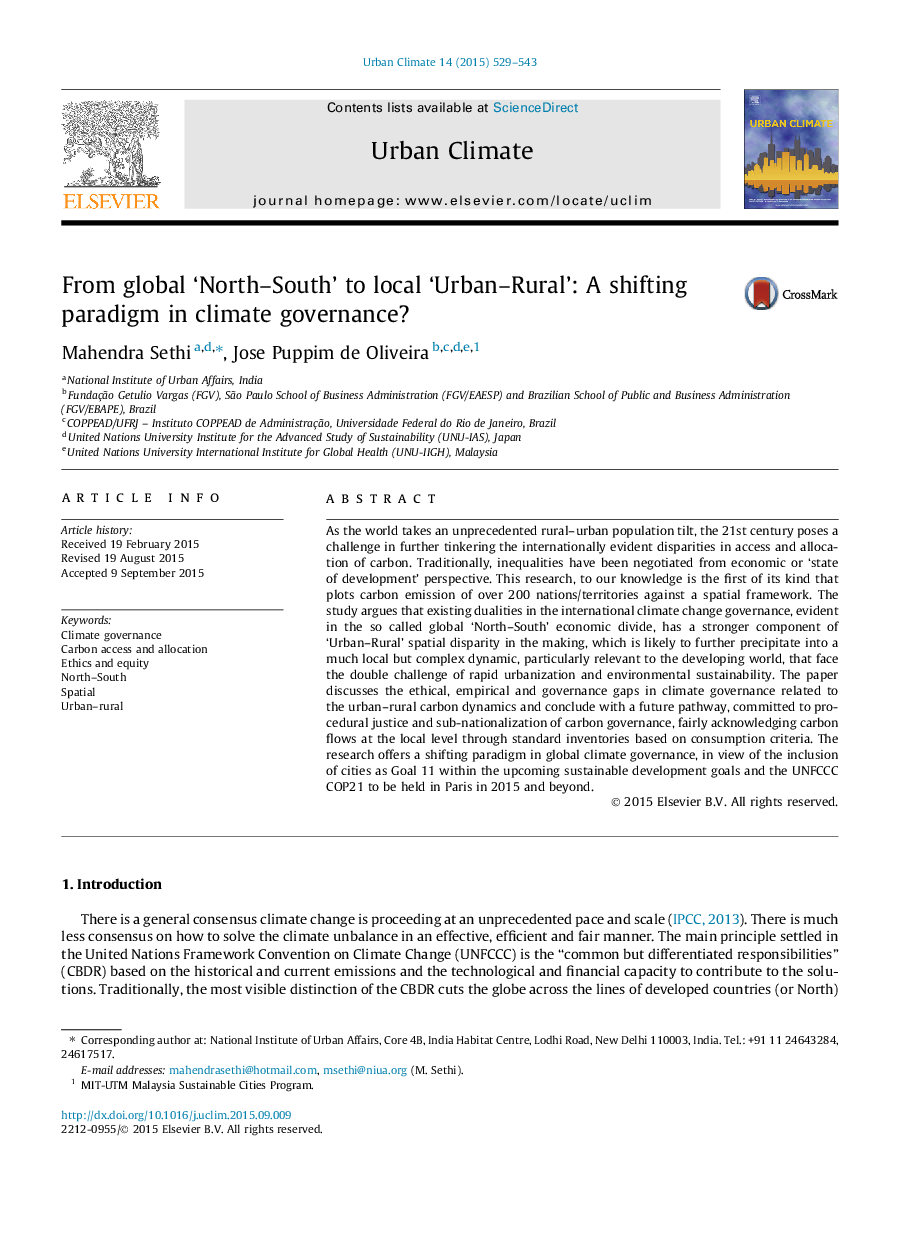| Article ID | Journal | Published Year | Pages | File Type |
|---|---|---|---|---|
| 10260262 | Urban Climate | 2015 | 15 Pages |
Abstract
As the world takes an unprecedented rural-urban population tilt, the 21st century poses a challenge in further tinkering the internationally evident disparities in access and allocation of carbon. Traditionally, inequalities have been negotiated from economic or 'state of development' perspective. This research, to our knowledge is the first of its kind that plots carbon emission of over 200 nations/territories against a spatial framework. The study argues that existing dualities in the international climate change governance, evident in the so called global 'North-South' economic divide, has a stronger component of 'Urban-Rural' spatial disparity in the making, which is likely to further precipitate into a much local but complex dynamic, particularly relevant to the developing world, that face the double challenge of rapid urbanization and environmental sustainability. The paper discusses the ethical, empirical and governance gaps in climate governance related to the urban-rural carbon dynamics and conclude with a future pathway, committed to procedural justice and sub-nationalization of carbon governance, fairly acknowledging carbon flows at the local level through standard inventories based on consumption criteria. The research offers a shifting paradigm in global climate governance, in view of the inclusion of cities as Goal 11 within the upcoming sustainable development goals and the UNFCCC COP21 to be held in Paris in 2015 and beyond.
Related Topics
Physical Sciences and Engineering
Earth and Planetary Sciences
Earth and Planetary Sciences (General)
Authors
Mahendra Sethi, Jose Puppim de Oliveira,
